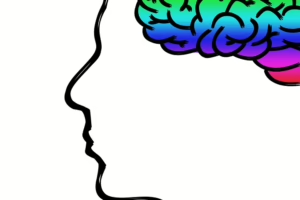From Passion to Profession: Exploring Master’s Programs in Sports Psychology
Introduction
In the dynamic world of sports, the mental aspect has gained increasing recognition for its impact on performance. Athletes are no longer viewed solely as physical beings but as individuals whose mental fortitude plays a crucial role in their success. This shift has led to the emergence of sports psychology as a vital field that merges passion for sports with scientific understanding. Pursuing a master’s degree in sports psychology can transform an individual’s passion into a rewarding profession. This article explores the various facets of master’s programs in sports psychology, emphasizing their importance, components, and the potential career paths they open for graduates.
The Need for Sports Psychology
The Role of Psychology in Sports
The modern sports landscape is characterized by heightened competition, increasing pressure, and the constant pursuit of excellence. Athletes today face not only physical challenges but also psychological pressures that can affect their performance and well-being. Sports psychology addresses these issues, focusing on how mental processes influence athletic performance.
Growth of the Field
The rise of sports psychology has been significant over the past few decades. Research indicates that mental training can enhance performance, reduce anxiety, improve focus, and promote overall well-being. Consequently, sports organizations, coaches, and athletes are investing more resources into understanding and implementing psychological strategies.
Master’s Programs in Sports Psychology
Overview of Master’s Programs
Master’s programs in sports psychology are designed to equip students with theoretical knowledge and practical skills in psychology and sports sciences. These programs often combine coursework, research opportunities, and experiential learning. The duration can vary but typically spans two to three years.
Core Components
-
Foundational Psychology Courses: Students study cognitive, developmental, and social psychology to understand the mental processes involved in sports.
-
Sports-Specific Courses: Topics may include performance enhancement, motivation, leadership, and team dynamics.
-
Research Methodology: Students learn research methods relevant to psychology to critically analyze studies and conduct their own research projects.
-
Practical Experience: Many programs require internships or practicum experiences, allowing students to apply learned theories in real-world settings, such as with sports teams or individual athletes.
-
Ethics and Professional Practice: Ethical considerations in sports psychology are emphasized, preparing students to approach their work responsibly.
Admission Requirements
Admission to master’s programs in sports psychology is competitive. Common requirements include:
- A bachelor’s degree in psychology, sports science, or a related field.
- Letters of recommendation.
- A statement of purpose reflecting passion for the field.
- Relevant experience, such as internships or volunteering in sports settings.
Notable Programs
Several institutions are renowned for their master’s programs in sports psychology:
-
John F. Kennedy University: Offers a program focused on applying psychological principles in sports contexts.
-
Columbia University: Provides a unique interdisciplinary approach combining psychology and sports business.
-
California State University, Long Beach: Known for its hands-on learning and strong network within the sports industry.
-
University of Florida: Features a program emphasizing research and applied practice.
-
University of Denver: Focuses on training students to work with athletes in various settings.
Curriculum Highlights
Key Areas of Study
The curriculum for master’s programs in sports psychology covers a broad range of topics, ensuring a comprehensive understanding of both the psychological and practical aspects of the field.
Mental Skills Training
One of the core components includes mental skills training, which equips athletes with techniques to enhance focus, motivation, and resilience. Techniques may include visualization, self-talk, and relaxation exercises.
Performance Enhancement
Students learn various approaches to help athletes improve performance, such as goal-setting strategies, concentration techniques, and coping mechanisms for handling stress and pressure during competitions.
Team Dynamics
Understanding how teams operate is crucial in sports. This area explores communication, leadership roles, and the impact of team cohesion on performance. Students may engage in group projects to analyze real-life team scenarios.
Injury Recovery and Rehabilitation
Injuries are an inevitable part of sports. The psychological implications of injuries and the rehabilitation process are covered, focusing on how sports psychologists can support athletes through recovery.
Practical Experience
Internships and Practicum
Gaining practical experience is a vital component of master’s programs in sports psychology. Most programs require students to complete internships in sports settings, where they can apply theoretical knowledge, develop skills, and build professional networks.
Benefits of Hands-On Experience
-
Real-World Application: Internships provide students with the opportunity to see how sports psychology works in practice, solidifying their understanding of various concepts.
-
Networking Opportunities: Working alongside experienced professionals allows students to form connections that can aid in their job searches post-graduation.
-
Skill Development: Practical experiences help students develop essential skills, such as communication, assessment, and intervention strategies tailored to athletes’ needs.
Research Opportunities
Research plays a critical role in advancing the field of sports psychology. Master’s programs often require students to complete a thesis or research project, allowing them to contribute to the body of knowledge in the domain.
Topics for Research
Areas of research in sports psychology can vary widely, including:
- The effects of mental imagery on performance.
- Coping strategies for athletes dealing with stress.
- The role of motivation in team sports.
- Psychological aspects of injury recovery.
Career Opportunities
Diverse Career Paths
Graduates of master’s programs in sports psychology can pursue various careers, reflecting the demand for psychological support in sports contexts. Below are common career paths for sports psychology graduates.
Sports Psychologist
As a certified sports psychologist, individuals work with athletes at all levels, from amateur to professional, providing mental coaching and support to enhance performance.
Performance Consultant
Performance consultants focus on helping athletes improve their performance through mental skills training, goal setting, and establishing competitive mindsets.
Academic Roles
For those inclined towards teaching and research, academic positions in universities or colleges offer the chance to educate future generations of sports psychologists while engaging in scholarly research.
Corporate Wellness Coordinator
In the corporate sector, sports psychology graduates can apply their skills to promote wellness and performance in organizations, working on team building, leadership development, and employee motivation.
Sports Coach
With a solid understanding of both psychology and sports management, graduates may take on coaching roles, incorporating psychological principles into their coaching strategies to develop well-rounded athletes.
The Importance of Certifications
While a master’s degree opens many doors, obtaining relevant certifications enhances job prospects further. Credentials such as certification from the Association for Applied Sport Psychology (AASP) can establish credibility and demonstrate expertise.
Challenges in the Field
Breaking Into the Industry
While the demand for sports psychologists is growing, breaking into the field can be challenging. Gaining relevant experience, obtaining certifications, and building a network are essential steps for aspiring professionals.
Ethical Considerations
Practitioners must navigate ethical considerations related to confidentiality, dual relationships, and the well-being of the athlete. Ethically sound practices are vital in establishing trust and maintaining the integrity of the profession.
Stigma Surrounding Mental Health
Despite growing awareness, stigma surrounding mental health in sports persists. Sports psychologists must work tirelessly to advocate for the importance of mental health and overcome misconceptions.
Future of Sports Psychology
Increasing Recognition
The importance of mental health in sports will continue to garner attention, leading to an increased demand for trained professionals in the field. Sports organizations are likely to invest more in psychological services, recognizing that mental well-being directly affects performance.
Integration with Technology
As technology evolves, the integration of tools such as virtual reality and biofeedback in mental training is becoming more prevalent. Sports psychologists must stay abreast of these advancements to provide cutting-edge support for athletes.
Global Perspectives
The globalization of sports presents an opportunity for sports psychology practitioners to work with diverse populations. Understanding cultural nuances in psychology will be essential as professionals engage with athletes from various backgrounds.
Conclusion
Pursuing a master’s degree in sports psychology provides aspiring professionals with the knowledge, skills, and experience necessary to make a meaningful impact in the world of sports. With a comprehensive understanding of the psychological dynamics at play in athletic performance, graduates can support athletes in achieving their goals while prioritizing their mental health. As the field continues to grow, the fusion of passion and profession will create exciting opportunities for those dedicated to the art and science of sports psychology.
References
- [1] Smith, R. (2020). The Role of Mental Skills in Sports Performance. Journal of Sports Psychology.
- [2] Jones, M., & Lavallee, D. (2021). Sports Psychology: A New Understanding for Athletes. International Journal of Sports Science.
- [3] American Psychological Association. (2019). Guidelines for Education and Training in Sport and Exercise Psychology.
- [4] Association for Applied Sport Psychology. (2022). AASP Certification Standards and Guidelines.
- [5] Williams, J. M., & Krane, V. (2019). Applied Sport Psychology: Personal Growth to Peak Performance. McGraw-Hill.
This comprehensive exploration serves as a guiding light for those contemplating a career in sports psychology, emphasizing that the journey from passion to profession is not only attainable but also increasingly vital in today’s competitive sports environment.


























Add Comment